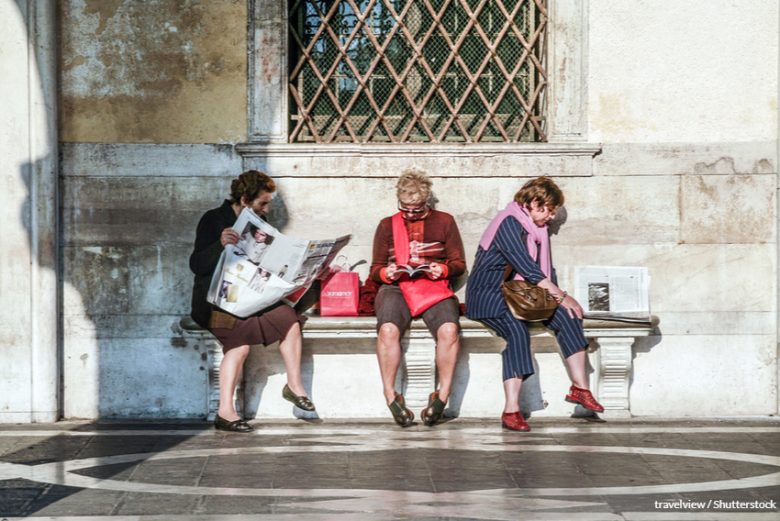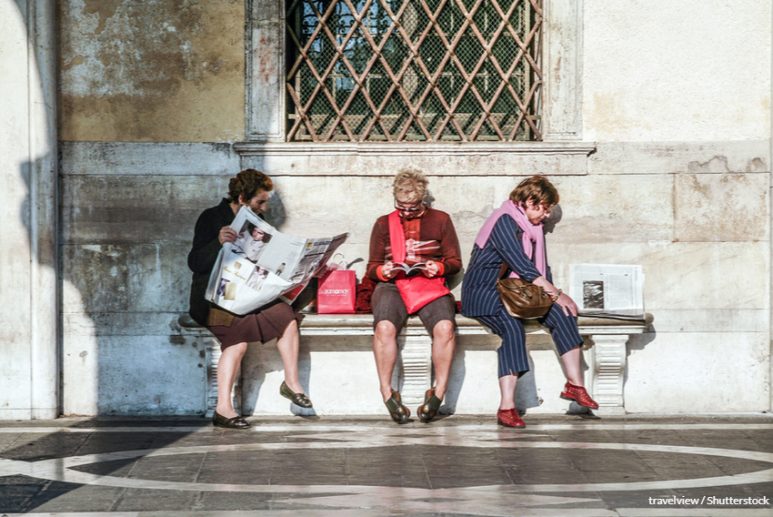By Alessandra Vescio
In January 2022, Italian politicians were set to vote for the new President of the Republic. After President Sergio Mattarella’s 7-year mandate, 1,009 electors among regional delegates and politicians from the Chamber of Deputies and the Senate were called to choose the new head of State, the person who would lead Italy in a complex and historical moment through an economic, social and health crisis.. Many contenders were suggested by parties, such as the Italian Prime Minister Mario Draghi, the former Prime Minister Silvio Berlusconi, and the former President of the Italian Senate Marcello Pera. Another name that was circulating before the elections was “a woman”. Precisely, the alternative to different and specific names of male politicians was just “a woman”. It wasn’t really important who she was, what kind of career and titles she owned or if she had ever been a politician – the important aspect that was emphasised by media and politicians was her gender. After different failed attempts to elect the President, the centre-right alliance proposed the name of the current President of the Senate Maria Elisabetta Alberti Casellati, a conservative politician whose candidacy was, in many commentators’ opinion, a planned shipwreck.
It is not the first time that Italian politicians talk about the importance of having women in leadership but the way in which they suggest it always reveals the same dynamic: there is never the proposal of a concrete name, a specific figure with specific competences. Rather, the most valued trait is her gender. And yet, when there is the possibility to elect a woman two common scenarios take place: the suggested woman has nothing different than a man, she is often a name proposed by the far right parties and she would just replicate old conservative dynamics; or she just doesn’t exist, she does not have a name, she does not have a career, she only represents her gender.

The practice of not naming women doesn’t stop here and it’s not a political prerogative. Every day in newspapers, online magazines and TV news, it is possible to witness a debasing portrait of women. In 2020, while the media were debating on whom the Swedish Academy could have awarded the Nobel Literature Prize, an important Italian newspaper published an article with an emblematic title “The Nobel Prize during Covid. Murakami or a woman?” The article listed some renowned – and profoundly different from each other – women’s names such as Margaret Atwood, Annie Ernaux, Jamaica Kincaid, but the most considerable feature to emphasise in the newspaper’s view was their gender.
Furthermore, if it is not their gender, it would be their gender role to be highlighted. In 2020, at the beginning of the pandemic, Dr. Concetta Castilletti and Dr. Francesca Colavita from the National Institute for Infectious Diseases “Lazzaro Spallanzani” IRCCS, Rome, isolated the DNA sequence of SARS-CoV-2, an important step that helped to study the virus and to combat the outbreak. Several Italian newspapers celebrated this important discovery and those behind it, referring to the scientists as “Concetta and Francesca”, “Southern women” or even “angels of the hearth”. The maternal imagery often resounds in Italian newspapers when referring to women, regardless its relation to the topic of the articles. For instance, Emanuela Girardi, founder of Pop AI (Popular Artificial Intelligence) and member of the group of Artificial Intelligence experts appointed by the Italian Ministry of Economic Development in 2019, was described by an Italian newspaper as “mother of three children with the dream of going into space”.
Another commonly used approach is the one that focuses on women’s appearance instead of their – often impressive – achievements. For example, Italian swimming Federica Pellegrini, who – among many successful goals – won a gold medal at the 2008 Beijing Olympics, holds a world record and qualified for the final of the 200 metre freestyle at the 2020 Summer Olympics in Tokyo, is frequently described as “beautiful” and “sexy”, and many words are spent writing about her private life and how she looks.
It is clear that a double standard lies in the Italian media’s way of talking about women and men.
Giulia Blasi who is a feminist writer and author of “Manuale per ragazze rivoluzionarie” (Handbook for revolutionary girls), “Rivoluzione Z – Diventare adulti migliori con il femminismo” (Z revolution – Becoming better adults with feminism) and “Brutta – Storia di un corpo come tanti” (Ugly – A story of a body like many others), three very successful and thought-inspiring feminist essays, questions the media narrative of the ‘successful woman’.
“Let’s start from a necessary premise: the narrative of the ‘successful woman’ can, and often will, affect women in a very negative way. First off, this narrative removes the question of privilege from the equation, and privilege is a fundamental component of almost all success stories that are used to ‘motivate’ girls (as well as boys, albeit in different ways). The underlying assumption is that failure is a fault, and that everyone can make it if they want it hard enough, and that systemic discrimination is negligible and can be overcome through sheer force of will, and that there are no real obstacles to personal achievement,” Giulia Blasi tells Media Diversity Institute.
“Given this first major distortion, our culture relegates women to three main roles: helper/handmaid, decoration and mother. There is no positioning of women as leaders or figures of authority in our culture, not even as they grow older (as is the case with men). Every woman is therefore reduced to one of these roles: either she contributes, serves, helps, or she must be beautiful and charming, or (if the first two are missing), her maternal role is brought into play. On top of all this, there’s always the issue of anonymisation (women’s names being removed from news headlines announcing their personal achievements, or their contribution going uncredited) and infantilisation (exclusively female or female-led teams being called ‘the girls’),” she continues.
The identification of women with just their gender that is expressed for instance through the anonymisation brings to the idea that women are interchangeable. Not only this approach is diminishing for women, but it can also imply that when a woman in charge makes a mistake, the responsibility of that resides with her gender. Another effect of this approach is what happened during the election of the new President of the Republic in January. Political parties use women as a token and a tool so that they appear more progressive, with the sole aim, however, of getting the usual male politicians elected as the women candidates they propose stand no chance of winning the elections.
“Women are not recognised as human beings in their own right, but only as social functions. They are defined – and often, as a result of our culture, they define themselves – in relation to others: partners, children, relatives, as well as colleagues or leaders of the charismatic, political or spiritual sort. As a society, we find it hard to recognise women as fully independent thinkers or artists: just think about how every time a new musician makes a name for herself, great emphasis is placed on her male collaborators, with the implication that they are the real ‘minds’ behind her vision.
And yet, yes, progress has been made. Firstly, because the discourse around these distortions is making them more obvious, and secondly because it is indisputable that privileged women are now regularly breaking the glass ceiling (although they still end up being called ‘A Woman’ in headlines: we need to work on that). Too bad that they pull up the ladder behind them, because feminism is rarely part of their culture: conservative women still have it easier on their way up, as they pose no threat to the system,” Giulia Blasi explains.
The way in which Italian media and politicians diminish women is so common that an Instagram profile called “Una donna a caso” (A woman, randomly) was created, with the aim of finding the humour in this approach but also to shed light on a common and devaluing practice and reflect on it.
It is important indeed to talk about this phenomenon in order to be able to understand it and fight it, and to start to treat and describe women just as the human beings they are.
Photo Credits: travelview / Shutterstock

